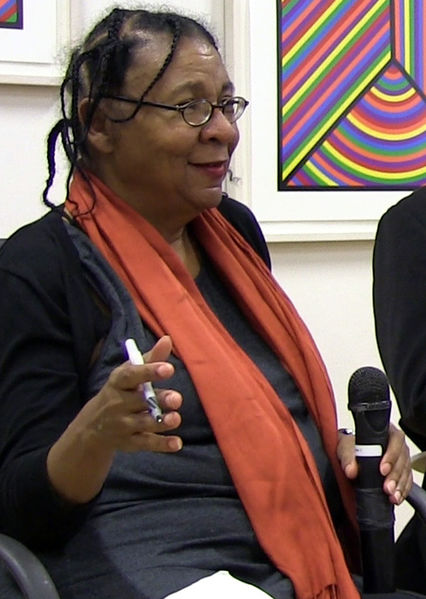Ain't I a Woman? Black Women and Feminism is a 1981 book by bell hooks titled after Sojourner Truth's "Ain't I a Woman?" speech. hooks examines the effect of racism and sexism on Black women, the civil rights movement, and feminist movements from suffrage to the 1970s. She argues that the convergence of sexism and racism during slavery contributed to Black women having the lowest status and worst conditions of any group in American society. White female abolitionists and suffragists were often more comfortable with Black male abolitionists such as Frederick Douglass, while southern segregationalists and stereotypes of Black female promiscuity and immorality caused protests whenever Black women spoke. hooks points out that these white female reformers were more concerned with white morality than the conditions these morals caused Black Americans.
Cover of the first edition
Gloria Jean Watkins, better known by her pen name bell hooks, was an American author, theorist, educator, and social critic who was a Distinguished Professor in Residence at Berea College. She was best known for her writings on race, feminism, and class. She used the lower-case spelling of her name to decenter herself and draw attention to her work instead. The focus of hooks' writing was to explore the intersectionality of race, capitalism, and gender, and what she described as their ability to produce and perpetuate systems of oppression and class domination. She published around 40 books, including works that ranged from essays, poetry, and children's books. She published numerous scholarly articles, appeared in documentary films, and participated in public lectures. Her work addressed love, race, social class, gender, art, history, sexuality, mass media, and feminism.
bell hooks in October 2014
bell hooks in 2009



